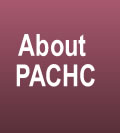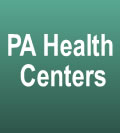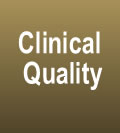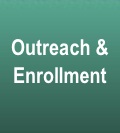THE PENNSYLVANIA COMMUNITY HEALTH CENTER MANUAL - is a one-stop resource for new FQHCs and new FQHC leaders in Pennsylvania, with state-specific information to supplement existing resources. Topics include “The Becoming an FQHC Checklist,” governance, reimbursement policy, quality improvement and communication.
- What is a Federally Qualified Health Center (FQHC) and what are the benefits?
A federally qualified health center (community health center or FQHC) is a type of provider defined by the Medicare and Medicaid statutes. FQHCs include all organizations receiving grants under Section 330 of the Public Health Service Act, certain tribal organizations, and FQHC Look-Alikes.
Benefits include:
- Section 330 grant funding:
- Enhanced Medicare and Medicaid reimbursement
- Medical malpractice coverage through the Federal Tort Claims Act
- Eligibility to purchase prescription and non-prescription medications for outpatients at reduced cost through the 340B Drug Pricing Program
- Eligibility to register as a National Health Service Corps (NHSC) site for placement of NHSC clinicians
- Eligibility as a J-1 visa physician practice site
- Access to the Vaccine for Children program
- Eligibility for various other federal grants and programs
What is a Federally Qualified Health Center Look-Alike and what are the benefits?
An FQHC Look-Alike (FQHC-LA) is an organization that meets all of the eligibility requirements of an organization that receives a Public Health Service Section 330 grant, but does not receive grant funding.
FQHC Look-Alikes receive many of the same benefits as FQHCs, including:
- Enhanced Medicare and Medicaid reimbursement
- Eligibility to purchase prescription and non-prescription medications for outpatients at reduced cost through the 340B Drug Pricing Program
- Automatic designation as a Health Professional Shortage Area (HPSA). The HPSA designation provides eligibility to apply to receive National Health Service Corps (NHSC) personnel and eligibility to be a site where a J-1 visa physician can serve.
What is a Rural Health Clinic and what are the benefits?
A Rural Health Clinic (RHC) is a primary care clinic located in a non-urbanized area that, once certified by the Centers for Medicare & Medicaid Services (CMS) as an RHC, receives cost-based reimbursement. The RHC model was designed to both provide enhanced reimbursement for rural providers as well as to encourage utilization of “mid-level providers”—physician assistants and nurse practitioners.
- What is a PHS Section 330 grant?
Section 330 of the Public Health Service Act defines federal grant funding opportunities for organizations to provide care to underserved populations. Types of organizations that may receive 330 grants include: Community Health Centers, Migrant Health Centers, Health Care for the Homeless Programs, and Public Housing Primary Care Programs.
The authorizing legislation of the health center program, Section 330 of the Public Health Service Act (42 USCS § 254b) can be found online at http://bphc.hrsa.gov/about/legislation/section330.htm
- Can a for-profit clinic be an FQHC or RHC?
An FQHC cannot be for profit;an FQHC must be a public entity or a private non-profit.
RHCs can be for profit.
Yes, FQHCs receiving Section 330 grants and FQHC Look-Alikes must be governed by a board of directors. The board must include a majority (at least 51%) of active, registered clients of the health center who are representative of the populations served by the center. The governing board ensures that the center is community based and responsive to the community’s health care needs. Under certain limited conditions the board composition requirements can be waived for migrant, homeless, public housing only health centers.
RHCs are not required to have a board of directors.
- Are there location requirements for FQHCs or RHCs?
FQHCs and FQHC Look-Alikes must serve a Medically Underserved Area (MUA) or Medically Underserved Population (MUP). To determine if your area qualifies, you can search the MUA/MUP database. (this is the link http://muafind.hrsa.gov/) FQHCs may be located in rural and urban areas.
If an area does not have the MUA/MUP designation contact the Pennsylvania Department of Health, Bureau of Health Planning for assistance 717-772-5298.
Migrant Health, Health Care for the Homeless and Public Housing Primary Care sites are not required to have MUA/P designations to qualify for federal Section 330 funding as these special populations are considered to be medically underserved by definition.
RHCs must be located in a non-urbanized area. Once certified by CMS as an RHC they are offered an automatic Health Professional Shortage Area (HPSA) designation.
- Are there special staffing requirements for FQHCs or RHCs?
FQHCs and FQHC Look-alikes are required to maintain a core staff as necessary to carry out all required primary, preventive, enabling health services and additional health services as appropriate and necessary, either directly or through established arrangements and referrals. Staff must be appropriately credentialed and licensed.
RHCs must use a mid-level provider at least half of the hours the RHC is open.
- What types of services do FQHCs and RHCs provide?
FQHCs must provide primary care services for all age groups. FQHCs must provide preventive health services on site or by arrangement with another provider. Other requirements that must be provided directly by an FQHC or by arrangement with another provider include: dental services, mental health and substance abuse services, transportation services necessary for adequate patient care, hospital and specialty care.
RHCs can limit the services they provide to certain age groups and the scope of primary care services they are required to provide is more limited.
- Are there minimum hours that an FQHC or RHC must be open?
FQHCs must be open a minimum of 32 hours per week. FQHCs must also have professional call coverage when the practice is closed, directly or through an after-hours care system.
RHCs do not have minimum hour or after-hours coverage requirements.
- Is a sliding fee scale required?
FQHCs must use a sliding fee scale with discounts based on patient family size and income in accordance with federal poverty guidelines. FQHCs must be open to all, regardless of their ability to pay.
RHCs are not required to offer services on a sliding fee scale based on income.
- How do I begin the process to apply to be an FQHC, FQHC Look-Alike or RHC and/or decide which option is the best for me?
Contact the Pennsylvania Association of Community Health Centers:
Phone 717.761.6443 or Toll Free 1.866.944.CARE
E-mail pachc@pachc.com
For more information on Health Center Program Expectations and Requirements, please see Health Center Program Expectations PIN 98-23 or visit the HRSA website.(http://bphc.hrsa.gov/policy/pin9823/default.htm)
(http://bphc.hrsa.gov/about/requirements.htm)For more information on the differences between FQHCs and RHCs, see “Comparison of the Rural Health Clinic and Federally Qualified Health Center Programs.”
http://www.ask.hrsa.gov/downloads/fqhc-rhccomparison.pdf
©2016 Pennsylvania Association of Community Health Centers
1035 Mumma Road, Suite 1, Wormleysburg, PA 17043












